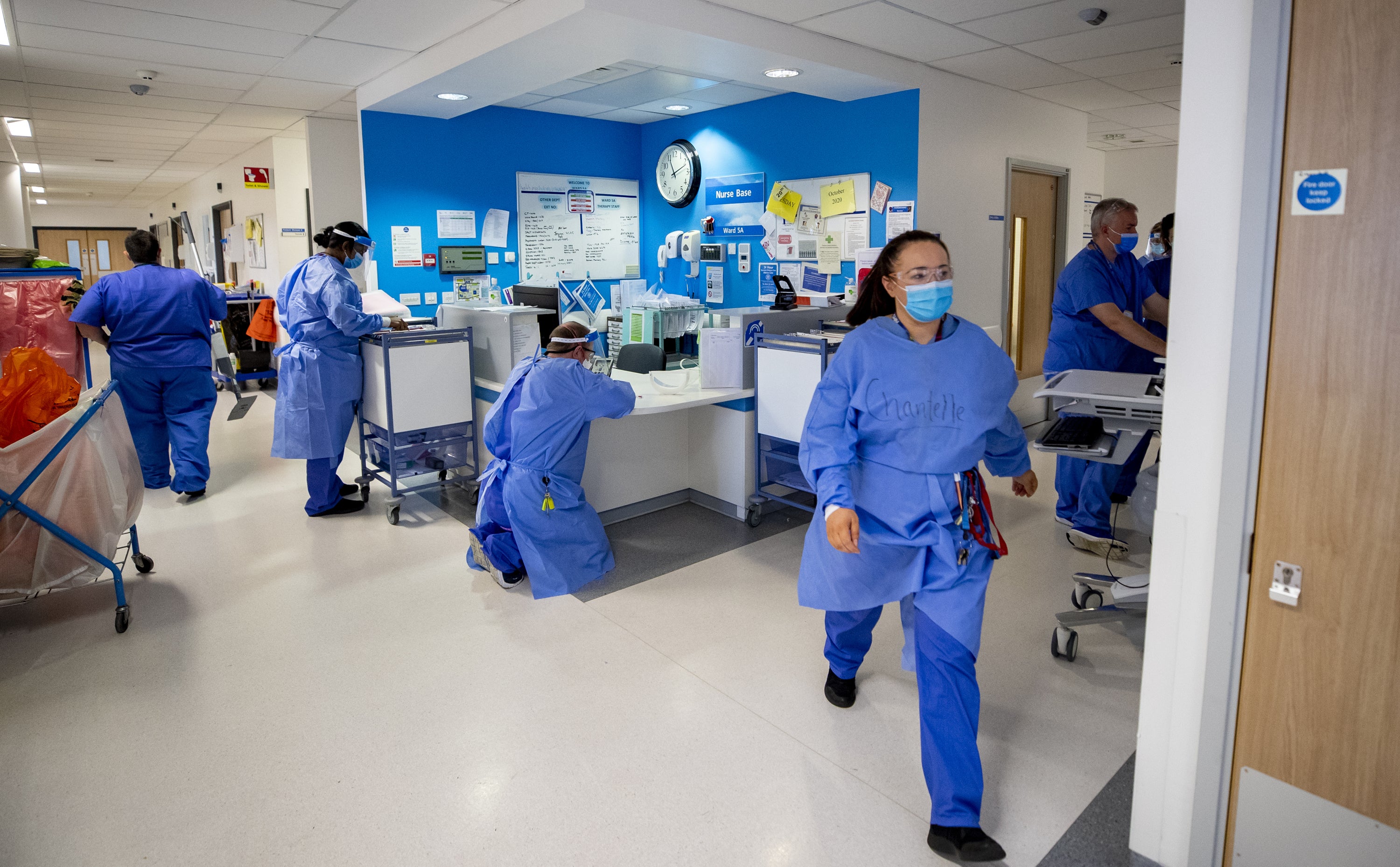Nurses to start voting next month on whether to strike over pay
If its members support strike action, it will be the first ever strike by Royal College of Nursing members in England or Wales.

Your support helps us to tell the story
From reproductive rights to climate change to Big Tech, The Independent is on the ground when the story is developing. Whether it's investigating the financials of Elon Musk's pro-Trump PAC or producing our latest documentary, 'The A Word', which shines a light on the American women fighting for reproductive rights, we know how important it is to parse out the facts from the messaging.
At such a critical moment in US history, we need reporters on the ground. Your donation allows us to keep sending journalists to speak to both sides of the story.
The Independent is trusted by Americans across the entire political spectrum. And unlike many other quality news outlets, we choose not to lock Americans out of our reporting and analysis with paywalls. We believe quality journalism should be available to everyone, paid for by those who can afford it.
Your support makes all the difference.Nurses will start voting next month on whether to strike over pay in what is being described as a “defining moment” for the profession.
The Royal College of Nursing (RCN) said it will be recommending hundreds of thousands of its members support industrial action in a ballot that opens in mid-September.
The postal ballot will ask RCN members working for the NHS in England and Wales on Agenda for Change contracts if they will take strike action which involves a complete withdrawal of labour.
It will open on Thursday September 15 for four weeks.
A lifetime of service must never mean a lifetime of poverty
If its members support strike action, it will be the first ever strike by RCN members in England or Wales.
The college went on strike for the first time in its history in Northern Ireland in 2019.
The RCN also announced it has increased its industrial action strike fund to £50 million, up from £35 million, to provide financial support towards lost earnings during strikes.
The college has called for a pay rise for nursing staff of 5% above RPI inflation, which is currently 11.8%.
Last month the Government announced a pay award the RCN said leaves an experienced nurse more than £1,000 worse off in real terms, describing it as “a national disgrace”.
RCN officials said industrial strike action was a last resort, but the current NHS staffing crisis was causing “unacceptable risk” to patients and staff.
A formal pay announcement is still awaited in Northern Ireland, while in Scotland the college has urged its members to reject a 5% pay offer from the Scottish government.
Pat Cullen, RCN general secretary, said: “Nursing staff will stop at nothing to protect their patients.
After years of underpayment and staff shortages, the fight for fair pay must strengthen
“Staff shortages are putting patient safety at risk and the Government’s failure to listen has left us with no choice but to advocate for strike action.
“A lifetime of service must never mean a lifetime of poverty. Ministers’ refusal to recognise the skill and responsibility of the job is pushing people out of the profession.
“The next prime minister must change course urgently.”
Carol Popplestone, who chairs the RCN Council, said in a message to members: “After years of underpayment and staff shortages, the fight for fair pay must strengthen.
“This year’s pay award does not help you with the rising cost of living. It will do nothing to help to recruit or retain more nursing staff where you work and will not keep patients safe.”
Alison Leary, a registered nurse and professor of healthcare and workforce modelling at London South Bank University, told PA: “In the UK, we have over 700,000 registered nurses, but only around half of them choose to work in the NHS. So that’s due to pay and conditions, lack of professional development, being undervalued in their work, and also workload.
“So basically, if you are being asked to look after too many patients and you can’t do a good job, then you get dissatisfied and you’d leave and that tends to be what nurses do.
“I can understand why they (nurses) would (strike). And I think often, people would question: what about patient safety if nurses strike? What does that do for patient safety?
“The fact is, the health service currently is unsafe; a lot of care is not being delivered. And it’s currently sort of spiralling down. It’s regrettable that they have to resort to industrial action, but I can completely see why they need to resort to industrial action. Without any significant change in policy, healthcare will become even more unsafe.
“It’s certainly the worst I’ve ever seen in 15 years of studying this area and this workforce. I think people are leaving at a faster rate; that’s never a good sign. People are staying for a shorter period of time in the profession, which is also not a good sign.”